Commentaries
Your Present Location: Teacher_Home> He Weiwen> CommentariesUS IPR complaints rejected
Source:Global Times Published: 2017/10/11
Experts cast doubt on `vague’ claim
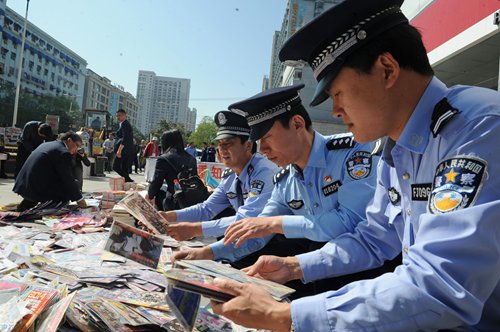
Police officers in Huainan, East China`s Anhui Province go through confiscated counterfeit books and DVDs before destroying them in April. Photo: IC
As US representatives made testimonies on Tuesday alleging "intellectual property theft" by China, experts said China welcomed US companies to settle their complaints via bilateral channels, and said unilateral actions by the US would not help.
US business and trade groups are at odds over how the US should act against what they believe to be intellectual property theft by China, with some pushing for harsh unilateral action and others believing that the US government should work with other nations to encourage China to address the problems, according to a Reuters report on Wednesday.
The current hearing is a new development in relation to the US government`s announcement in August of a Section 301 investigation into China`s alleged illegal transfer of itellectual property, which some in the US claim has cost the country hundreds of billions of dollars in technology and millions of jobs lost to China.
The US China Business Council, a trade group of 200 US companies that do business in China, said that surveys of its members found that just one-third had been asked to transfer technology, according to Reuters.
China has denied the legitimacy of the US probe, saying that it is a practice outside the framework of the WTO.
Flimsy claim
Chinese experts said that the US has been complaining about intellectual property rights (IPR) infringement or technology transfer issues for a long time, but the fact that they have not listed specific cases undermines the credibility of their claim.
"The US couldn`t specify when, where and how their IPR were infringed, so the hearing has become one-sided and we won`t recognize such a vague claim," said He Weiwen, an executive council member at the China Society for the WTO. "As to the valuation, how did they get such a figure?"
"China has no laws or regulations to force foreign firms to transfer technology, and if IPR theft took place, a US company could file a lawsuit and there will be a Chinese court to take the case and make a ruling. I am sure any violation would be rectified in a lawful manner," He told the Global Times.
In recent years, China has set up three special intellectual property courts to enhance protection.
John Zhang, secretary-general at the Beijing-based International Technology Transfer Network, told the Global Times on Wednesday that the US claim about firms being asked to transfer technology is a very vague notion.
"I haven`t heard that local governments, which are trying so hard to woo big high-tech US firms to invest in their industrial parks, are bold enough to attach additional clauses concerning transfer of advanced technology," Zhang said.
"On the other hand, some small US tech firms, which come to China to look for investment, could face the prospect of being asked to transfer their technology. But this is how we do business around the world, and there is nothing wrong with it," Zhang said.
Robust protection
Zhang said that China`s IPR legal system has become comprehensive.
"IPR cases related to US companies in China can be divided into three categories: Chinese infringement of US IPR, US infringement of Chinese IPR and infringement disputes among US firms doing business in China," Li Junhui, a professor at the China University of Political Science and Law, told the Global Times on Wednesday.
It should be noted that there has been an increasing number of cases of US violation of Chinese IPR in recent years, Li said.
"There are existing channels for the two sides to solve their problems via negotiations. However, it should be noted that these channels have nothing to do with the so-called Section 301 investigation, which China does not recognize," He Weiwen said, noting that there are over 90 bilateral working groups between the world`s two largest economies.
"If bilateral dialogue cannot work it out, we could go to the WTO. This is the legitimate way of addressing these disputes," He said.
While experts could not rule out the possibility of sporadic IPR infringement in the country, they said China has greatly improved its IPR protection.
"The US action harms the equal, win-win atmosphere and the practice of settling differences via dialogue," He said.
He Weiwen is a senior fellow of Chongyang Institute for Financial Studies, Renmin University of China.
Key Words: IPR; us; China; He Weiwen




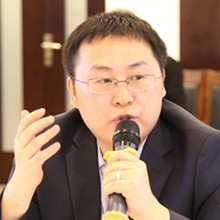











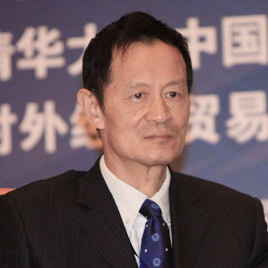



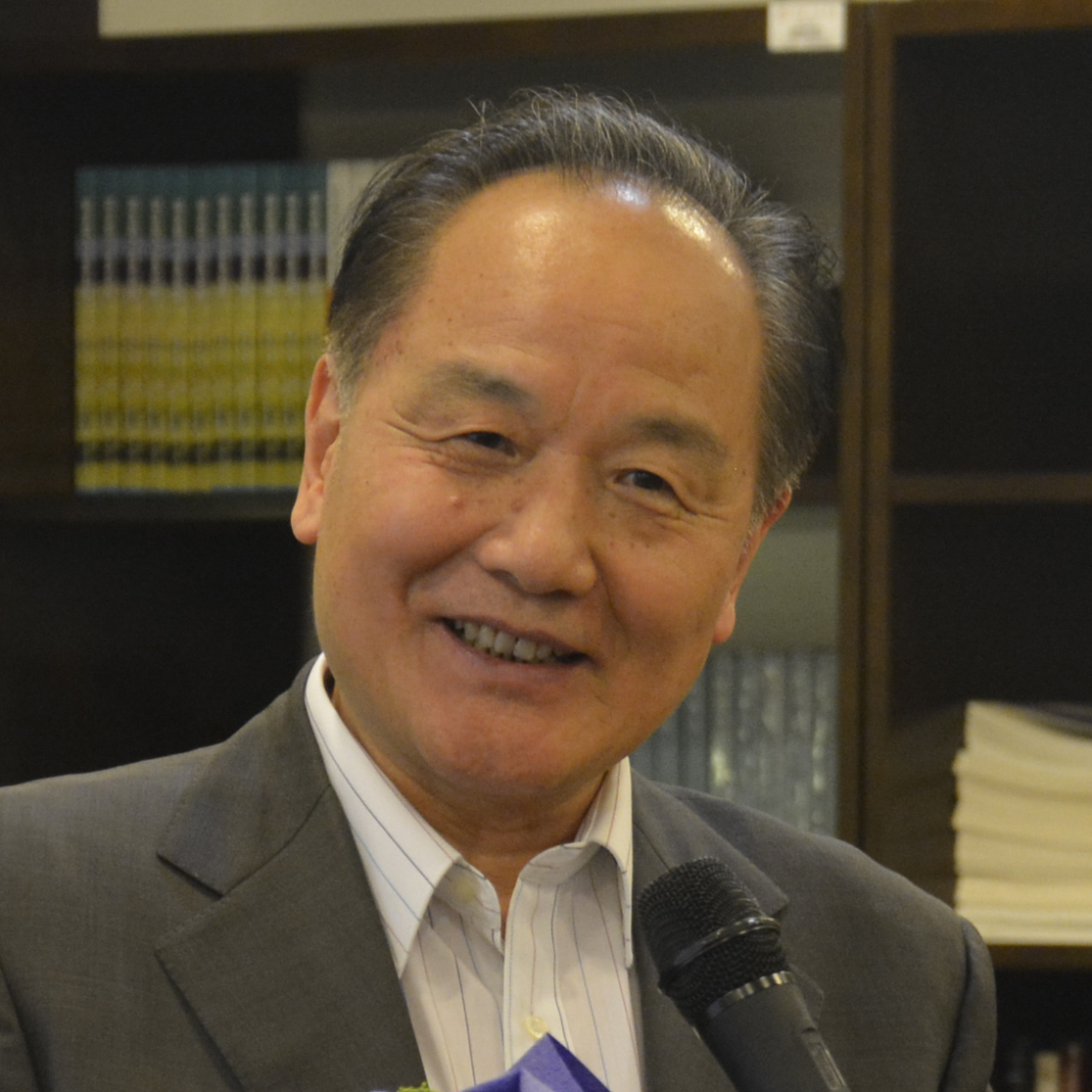



























































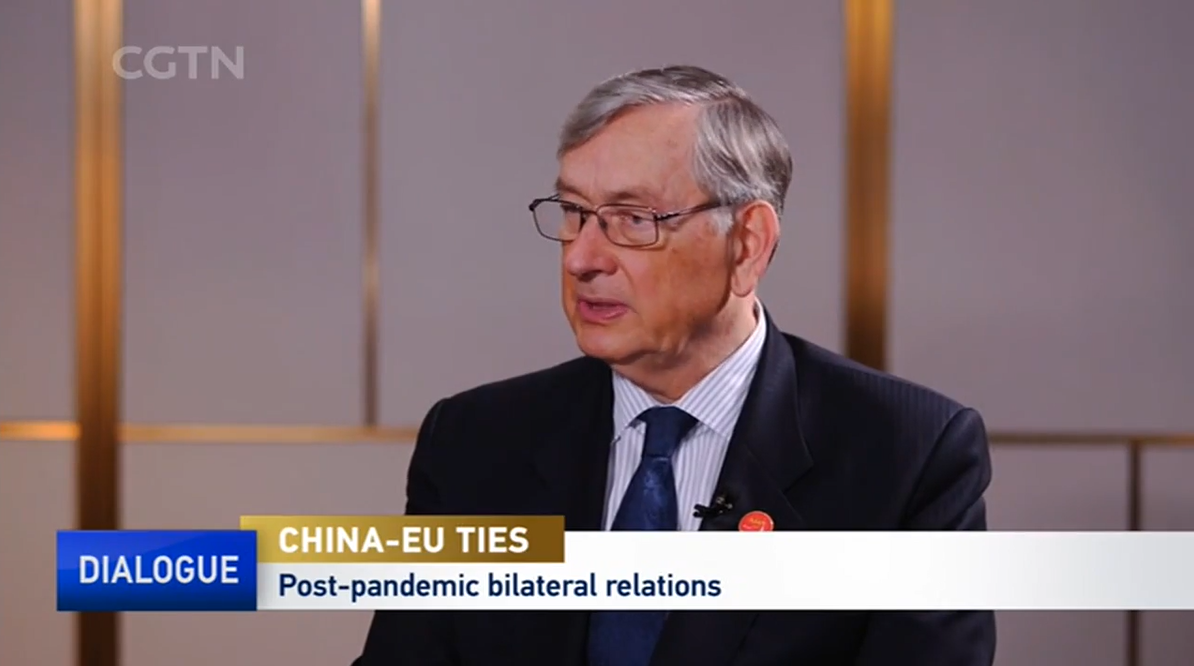
 京公网安备 11010802037854号
京公网安备 11010802037854号





